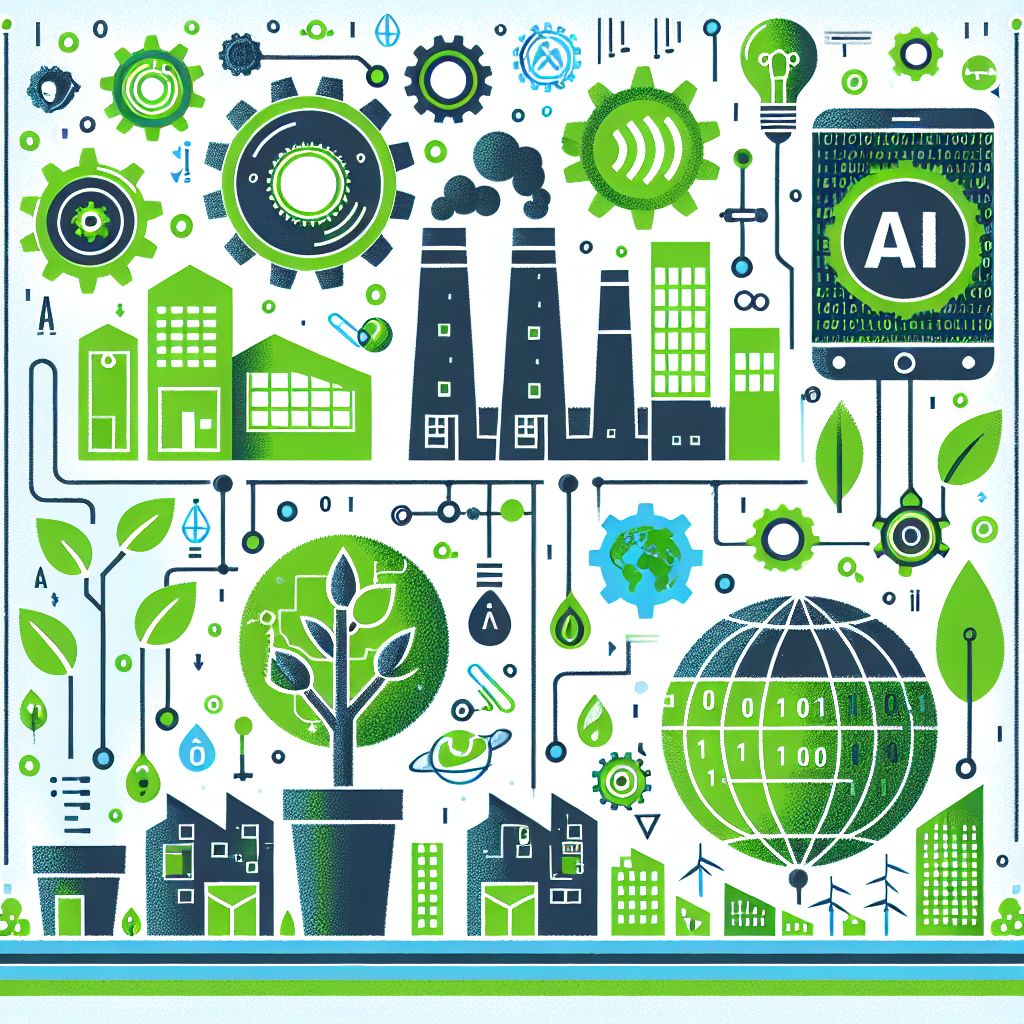Artificial Intelligence (AI) has been making significant strides in various industries, including manufacturing, where it is playing a crucial role in driving sustainability initiatives. By leveraging AI technologies, manufacturers can optimize their operations, reduce waste, and minimize environmental impact. In this article, we will explore the intersection of AI and sustainability in manufacturing, and how these technologies are revolutionizing the industry.
AI and Sustainability in Manufacturing
Manufacturers are under increasing pressure to reduce their carbon footprint and operate in a more sustainable manner. AI can help them achieve these goals by providing real-time insights into operations, optimizing processes, and identifying areas for improvement. One of the key ways in which AI is driving sustainability in manufacturing is through predictive maintenance.
Predictive maintenance uses AI algorithms to analyze data from sensors and other sources to predict when a machine or equipment is likely to fail. By predicting failures before they occur, manufacturers can schedule maintenance at the most convenient time, reducing downtime and minimizing the need for emergency repairs. This not only improves the efficiency of operations but also extends the lifespan of equipment, reducing the need for replacements and ultimately lowering the environmental impact of manufacturing processes.
Another way in which AI is promoting sustainability in manufacturing is through energy optimization. AI algorithms can analyze energy consumption data in real-time and identify opportunities for reducing energy usage. By optimizing energy consumption, manufacturers can lower their operating costs, reduce their carbon footprint, and contribute to a more sustainable future.
AI is also playing a crucial role in waste reduction in manufacturing. By analyzing data from various sources, including production processes, supply chain operations, and customer feedback, AI can identify areas where waste can be minimized. By optimizing processes and reducing waste, manufacturers can lower their environmental impact and improve their bottom line.
Furthermore, AI can help manufacturers make more informed decisions about sourcing materials and managing their supply chain. By analyzing data on supplier performance, product quality, and environmental impact, AI can help manufacturers identify sustainable sourcing options and make more responsible decisions about their supply chain operations.
Overall, AI is revolutionizing the manufacturing industry by enabling companies to operate more sustainably, reduce waste, and minimize their environmental impact. By leveraging AI technologies, manufacturers can not only improve their operational efficiency but also contribute to a more sustainable future for the planet.
FAQs
Q: How can AI help manufacturers reduce their carbon footprint?
A: AI can help manufacturers reduce their carbon footprint by optimizing energy consumption, implementing predictive maintenance strategies, and minimizing waste in their operations.
Q: What are some examples of AI applications in sustainable manufacturing?
A: Some examples of AI applications in sustainable manufacturing include predictive maintenance, energy optimization, waste reduction, and supply chain management.
Q: How can manufacturers implement AI technologies in their operations?
A: Manufacturers can implement AI technologies in their operations by investing in AI software and tools, training their employees on how to use these technologies, and partnering with AI experts to develop customized solutions for their specific needs.
Q: What are the benefits of using AI in manufacturing?
A: The benefits of using AI in manufacturing include improved operational efficiency, reduced downtime, lower operating costs, and a smaller environmental footprint.
Q: What are some challenges associated with implementing AI in manufacturing?
A: Some challenges associated with implementing AI in manufacturing include the high cost of AI technologies, the need for specialized expertise to develop and deploy AI solutions, and concerns about data privacy and security.

